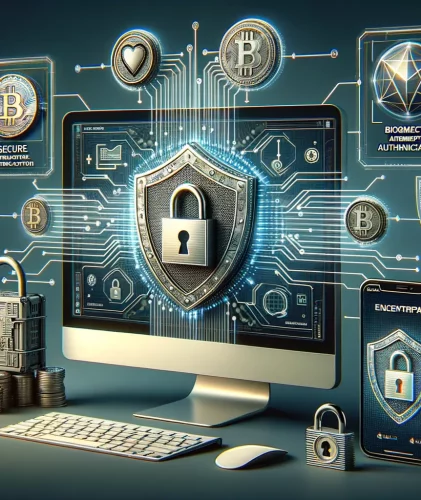Understanding the Importance of Cryptocurrency Wallet Security
Why Your Cryptocurrency Wallet Deserves Top-Tier Protection
Imagine this: your cryptocurrency wallet is like a treasure chest, brimming with digital gold. Now, picture leaving that chest wide open on a bustling street corner. Alarming, right? This is what it feels like when wallet security is neglected. Whether you’re a crypto newbie or a seasoned trader, the truth is simple—without strong safeguards, your assets are just a hacker’s playground.
Cryptocurrency wallets serve as the backbone of your digital wealth. They don’t just store your coins; they hold your private keys—the ultimate access codes to your funds. If someone seizes those keys, your treasure vanishes, and there’s no bank hotline to fix it. It’s not paranoia; it’s the reality of the crypto world.
So, what’s at stake? Beyond losing your investments, you risk opening the door to identity theft and even further financial harm. A single weak password or outdated software update could be the equivalent of handing your keys to a stranger. Protecting your wallet is more than a precaution—it’s the foundation of financial freedom in the decentralized era.
Key Features of Advanced Security Tools for Cryptocurrency Wallets
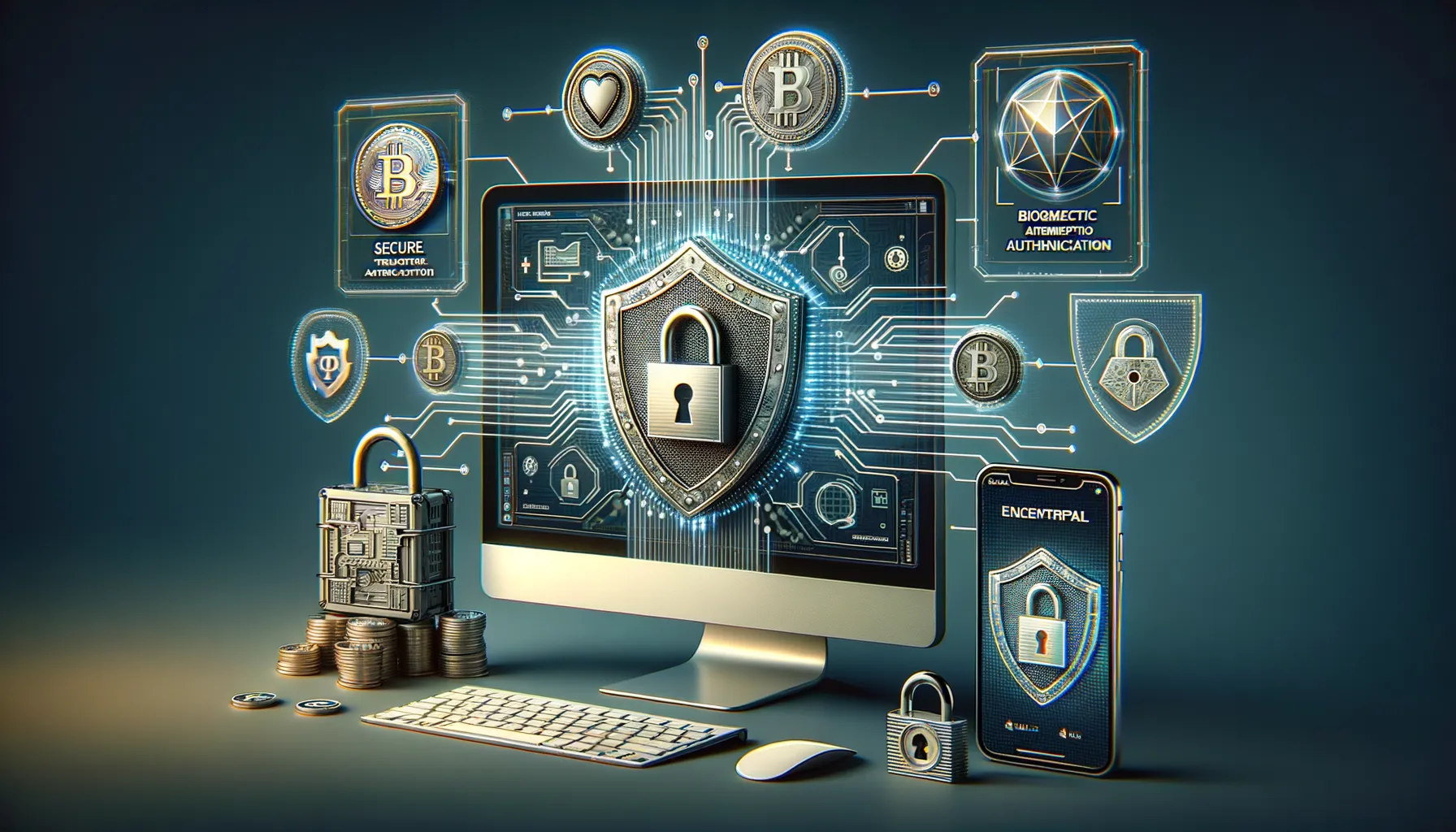
Smart Authentication: The Front Line of Defense
Imagine securing your cryptocurrency like guarding a treasure chest. Your first line of defense? Advanced authentication methods that go beyond basic passwords. These tools integrate features like biometric identification—think fingerprint scans or facial recognition. Forget trying to remember dozens of passwords! And for those who love an extra layer of reassurance, there’s multi-factor authentication (MFA). Combine something you know (a PIN), something you have (your smartphone), and even something you are (your fingerprint) to keep hackers out.
The most exciting part? Some tools now leverage hardware security modules (HSMs), creating a fortress so impenetrable it feels like something straight out of a spy movie. With these, your private keys never even touch the internet—talk about peace of mind.
Encryption and Backup Tools That Never Quit
When it comes to protecting your wallet, encryption isn’t just a feature; it’s a superhero cape for your data. Cutting-edge security tools wrap your private keys in end-to-end encryption, ensuring no wandering eyes can steal your fortune.
And let’s not forget about backups—because accidents happen, right? Whether you drop your device or spill coffee on it (we’ve all been there), today’s security options offer seamless, encrypted backup solutions. Just imagine having your digital assets automatically saved to a secure location without lifting a finger. It’s like hiring a 24/7 bodyguard for your wallet.
- Hot vs. Cold Wallet Support: Many tools allow easy management of funds between online (hot) and offline (cold) wallets for added flexibility.
- Anti-Phishing Features: Some systems give real-time alerts if you’re being targeted by sneaky fake websites or emails.
With tools this sophisticated, your crypto future gets brighter—and safer.
Best Practices for Enhancing Wallet Security
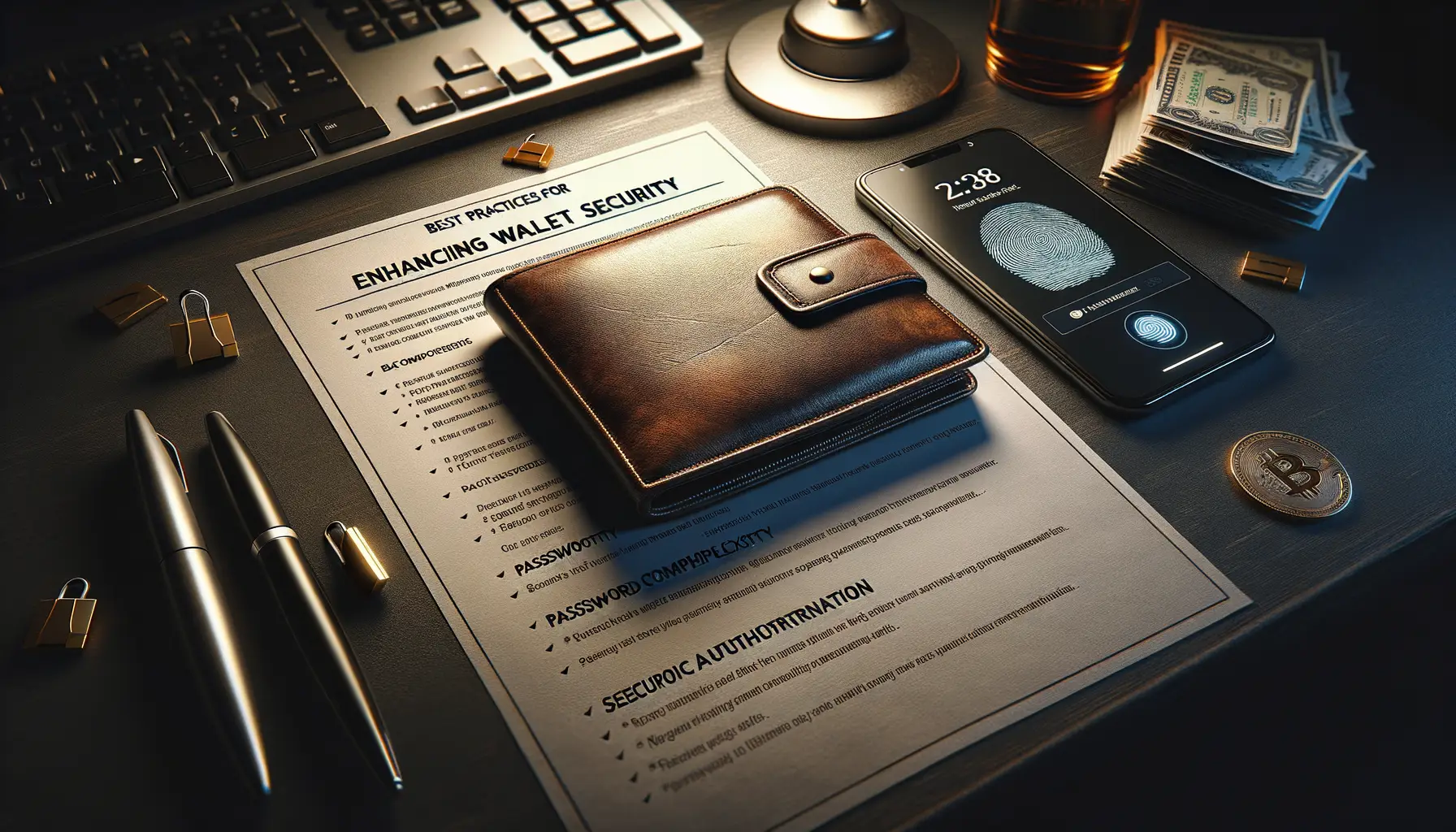
Fortify Your Wallet Like a Digital Vault
Think of your cryptocurrency wallet as a treasure chest—one that pirates, aka hackers, would love to raid. Strengthening its security doesn’t just mean locking it with a key; it’s about installing an entire fortress around it. Start with a strong, unique password. Forget birthdays, pet names, or “1234”; instead, go for an unpredictable mix of uppercase, lowercase, numbers, and symbols. Tools like password managers can help generate and safely store these Herculean passwords.
Next, don’t put all your eggs—or coins—in one basket. Seriously, avoid storing all your assets in a single wallet. Divide them across multiple wallets, creating layers of backup and safety. And while you’re at it, enable two-factor authentication (2FA). This powerful extra step ensures that even if someone snatches your password, they’ll hit a second roadblock.
- Store private keys offline—yes, old-school paper backups or hardware wallets are kings here.
- Avoid public Wi-Fi for wallet access. Public coffee shop networks? That’s hacker heaven!
- Always double-check wallet addresses before making transfers. Scammers thrive on tiny typos.
Pro tip: Stay paranoid (but in a good way). If something feels off, don’t hesitate to recheck your wallet’s security setup. Better safe than sorry, right?
Common Threats to Cryptocurrency Wallets and How to Mitigate Them
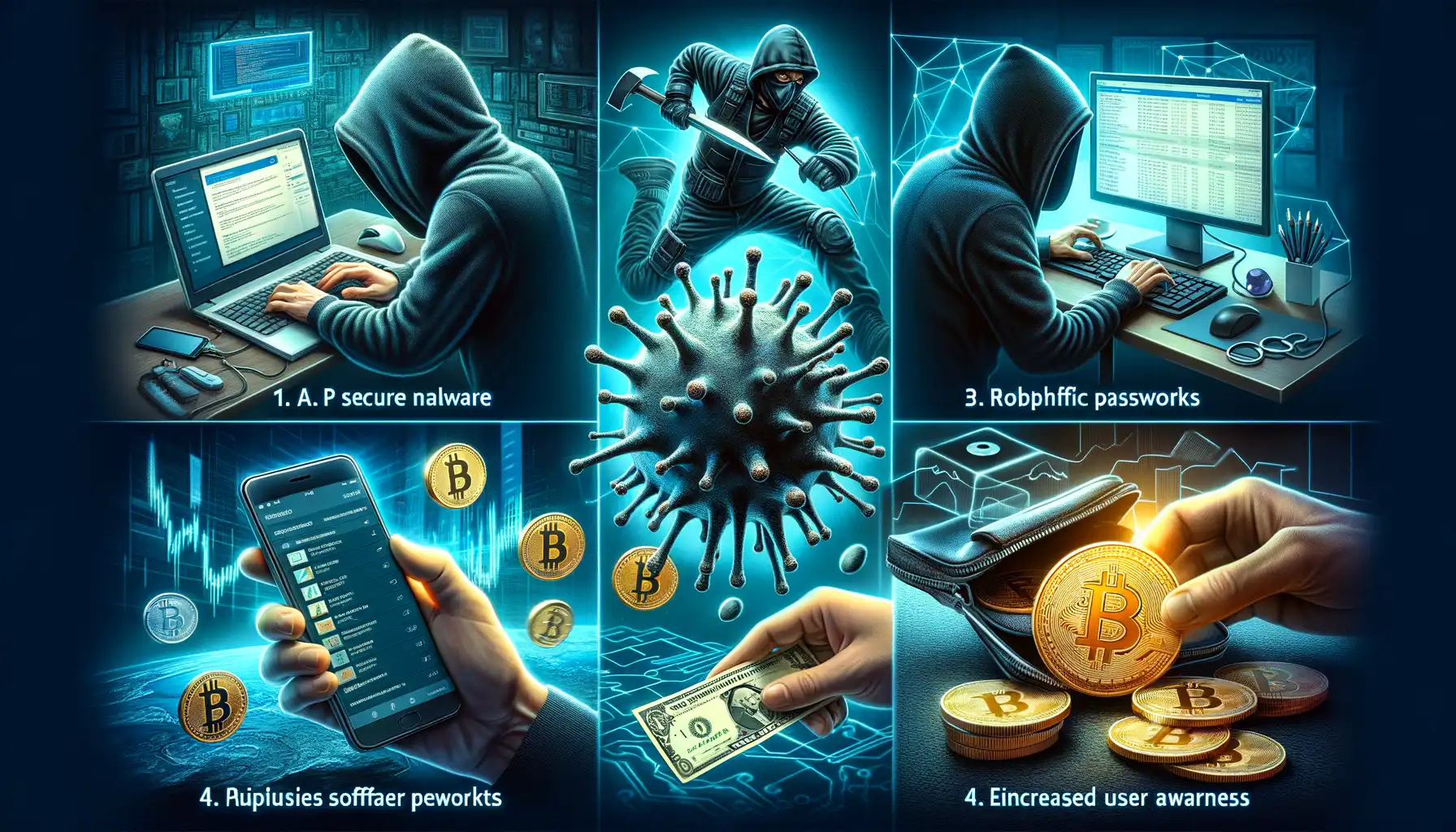
Watch Out for Common Cryptocurrency Threats
Your cryptocurrency wallet might feel like a fortress, but even the sturdiest defenses have their weak points. Hackers, scammers, and even silly mistakes can slip through the cracks, leaving your investments vulnerable. Let’s shine a light on those lurking dangers and, more importantly, how to dodge them.
1. Phishing Scams: This classic trap preys on trust and urgency. Fake emails claiming to be from a wallet provider, messages urging you to “act fast,” or malicious links masquerading as login portals—all of these are designed to steal your private keys. Always verify URLs before clicking, and never share sensitive info, even if the message seems legit.
2. Malware Attacks: Think keyloggers silently recording every keystroke or sneaky trojans sniffing out your wallet data. Antivirus software is your best buddy here, alongside frequent device scans and refraining from shady downloads.
- Use hardware wallets for offline storage.
- Keep wallet software up to date to patch vulnerabilities.
3. Human Error: Believe it or not, misplacing recovery phrases or sending coins to the wrong address happens more than you’d imagine. To prevent this, double-check everything—addresses, amounts, and even your backups. It’s better to be annoyingly cautious than heartbreakingly sorry.
Final Tips for Safeguarding Your Cryptocurrency Investments
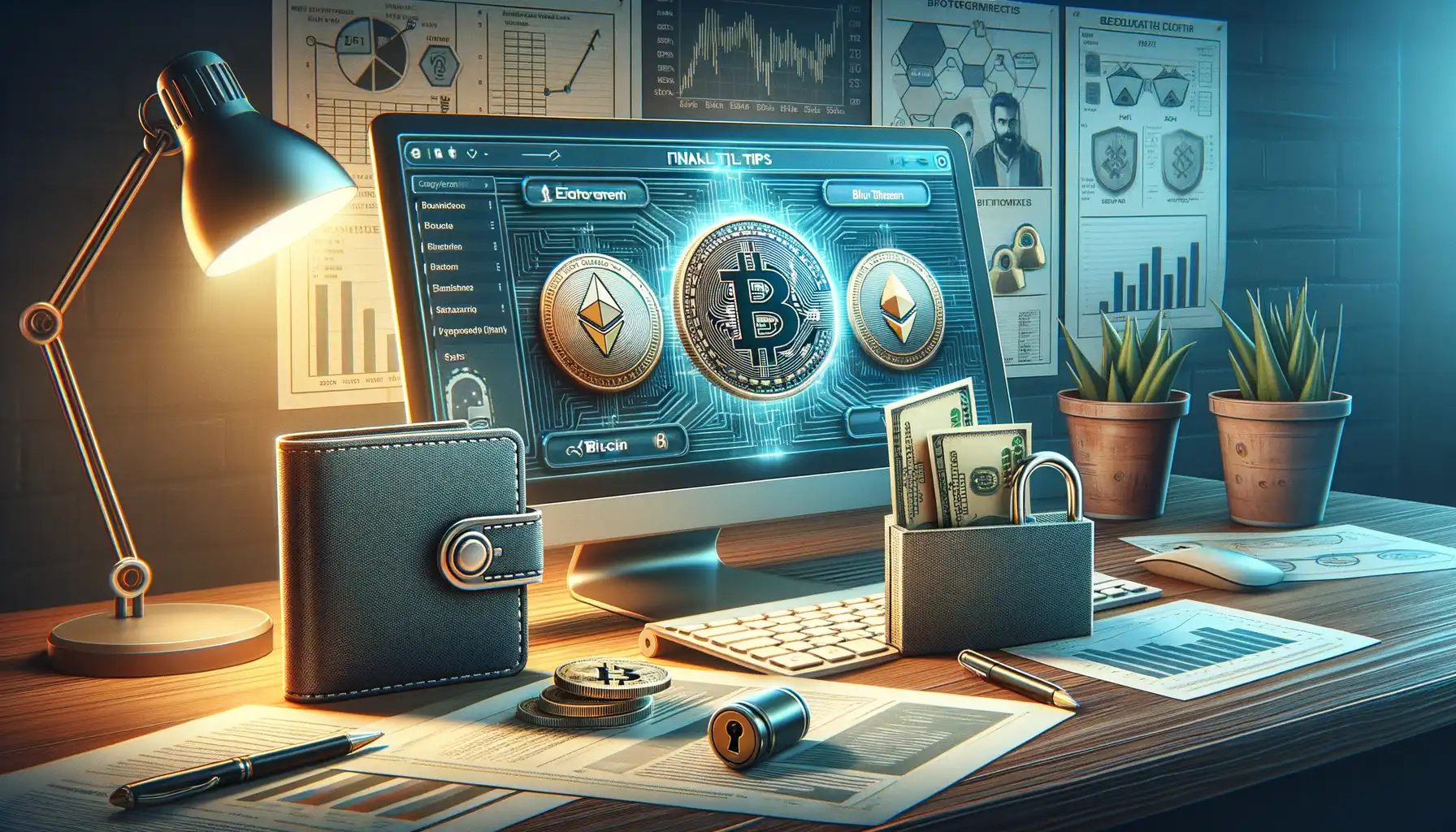
Be the Guardian of Your Digital Wealth
Picture your cryptocurrency as a priceless gem locked in a vault. That vault? It’s your wallet. But here’s the catch: even the most fortified vaults can be cracked without proper defenses. So, how do you become the ultimate protector of your digital assets? Let’s dive into it.
First, always back up your wallet. It sounds basic, right? But you’d be shocked at how many people skip this step. Imagine losing access because of a technical failure or human error—heart-stopping, isn’t it? Store backups offline in secure locations like encrypted USBs or external drives.
Keep your software updated. Think of security patches as reinforcements for your castle walls. Whether it’s your operating system, apps, or wallet software, updates often address vulnerabilities hackers would love to exploit.
Here are some no-brainer habits that make a *big* difference:
- Use strong passwords: Long, complex, and randomly generated—think of them as digital padlocks.
- Avoid public WiFi: Hackers lurk in the shadows of those “free” connections.
Stay One Step Ahead
Don’t wait for a red flag to remind you. Activate two-factor authentication (2FA) wherever possible—it’s like having a bouncer at the door of your digital vault. Also, diversify your storage; consider using multiple wallets instead of putting all your crypto eggs in one basket. And remember: less is more when it comes to sharing. The fewer people who know about your holdings, the safer you’ll be.
Protecting your investments doesn’t have to feel like walking a tightrope. A little caution, a dash of vigilance, and the right tools will keep your assets where they belong—securely in your hands.

